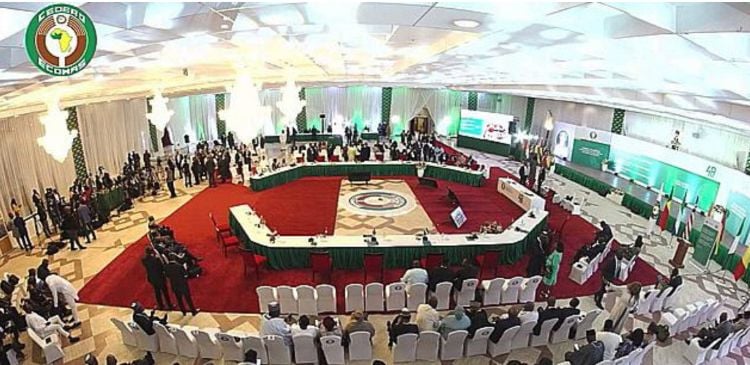Patricia Appiagyei, Ghana’s Deputy Minority Leader, has vehemently rejected her purported appointment to the ECOWAS Parliament, denouncing the process as legally unsound, procedurally flawed, and politically motivated. Appiagyei’s core argument rests on the assertion that she was neither consulted nor gave consent to replace Minority Leader Alexander Afenyo-Markin, who currently holds a Deputy Speaker position within the ECOWAS Parliament. She perceives the move as a deliberate attempt to sow discord within the Minority Caucus and undermine the leadership of Afenyo-Markin. The lack of prior communication and the unilateral nature of the announcement, especially in the absence of both herself and Afenyo-Markin during the parliamentary proceedings, further fuels her discontent. The fact that the proposal emanated from the Majority Leader amplifies suspicions of political maneuvering.
Appiagyei’s rejection is not solely based on procedural irregularities but is deeply rooted in the legal framework governing the ECOWAS Parliament. She emphasizes Afenyo-Markin’s valid four-year mandate, secured through election last year, which is protected by ECOWAS statutes. These statutes stipulate specific and limited grounds for the removal of a parliamentarian, including death, resignation, proven incapacity, incompatibility, or dismissal due to disrepute. None of these conditions apply to Afenyo-Markin’s situation. His current role as Deputy Speaker within the ECOWAS Parliament further solidifies his legitimacy and underscores the absence of any justifiable basis for his replacement. Appiagyei contends that attempting to remove him would violate not only internal parliamentary practices but also the very legal foundation of the ECOWAS Parliament.
The legal framework outlined in the Supplementary Act A/SA.1/12/16, adopted in December 2016, provides explicit guidelines regarding the tenure and replacement of ECOWAS Parliament members. Article 18(2) of the Act unequivocally states that members are elected for a four-year term, commencing from the inauguration of the Parliament and lasting until the end of the legislature. This fixed tenure safeguards against arbitrary removal and ensures the independence of members from national political fluctuations or internal party reshuffles. The Speaker and Deputy Speakers, according to Articles 24 and 25, hold their positions for the entire legislative term. Article 18(3), coupled with the Parliament’s Rules of Procedure, strictly defines the grounds for replacement, limiting them to death, resignation, certified incapacity, incompatibility as defined in the Act, removal due to disrepute, or failure to be re-elected.
The principle of incompatibility, as articulated in Article 19, aims to preserve the integrity and impartiality of the ECOWAS Parliament by preventing conflicts of interest. It prohibits members from concurrently holding executive positions in national governments, judicial offices, or positions in other international organizations that might clash with their ECOWAS responsibilities. Crucially, political realignments, changes in government, or internal party restructuring are explicitly excluded as valid reasons for replacing a member during their term. This provision reinforces the autonomy of the ECOWAS Parliament and shields its members from undue political influence.
Historical precedents further bolster Appiagyei’s argument. Several instances demonstrate the ECOWAS Parliament’s firm stance against unlawful replacements. In 2002, Togo’s attempt to replace Dahuku Péré was rejected due to the lack of legal basis under ECOWAS rules. Similarly, in 2025, the ECOWAS Parliament rebuffed Liberia’s efforts to recall three sitting MPs, emphasizing the fixed four-year term and the specific grounds for removal. In the same year, Guinea-Bissau’s request to replace Hon. Manuel Lopes was also denied because the cited reason did not fall within the permissible grounds outlined in Article 18.
Appiagyei’s rejection, grounded in procedural and legal arguments and supported by historical precedent, underscores the importance of upholding the integrity and independence of the ECOWAS Parliament. Her strong stance against what she considers a politically driven maneuver serves to protect the institution’s autonomy and ensure its adherence to the established legal framework. The case highlights the potential for conflict between national political interests and the supranational legal order of the ECOWAS Parliament, emphasizing the need for strict adherence to established rules and procedures to maintain the credibility and effectiveness of the regional body.


